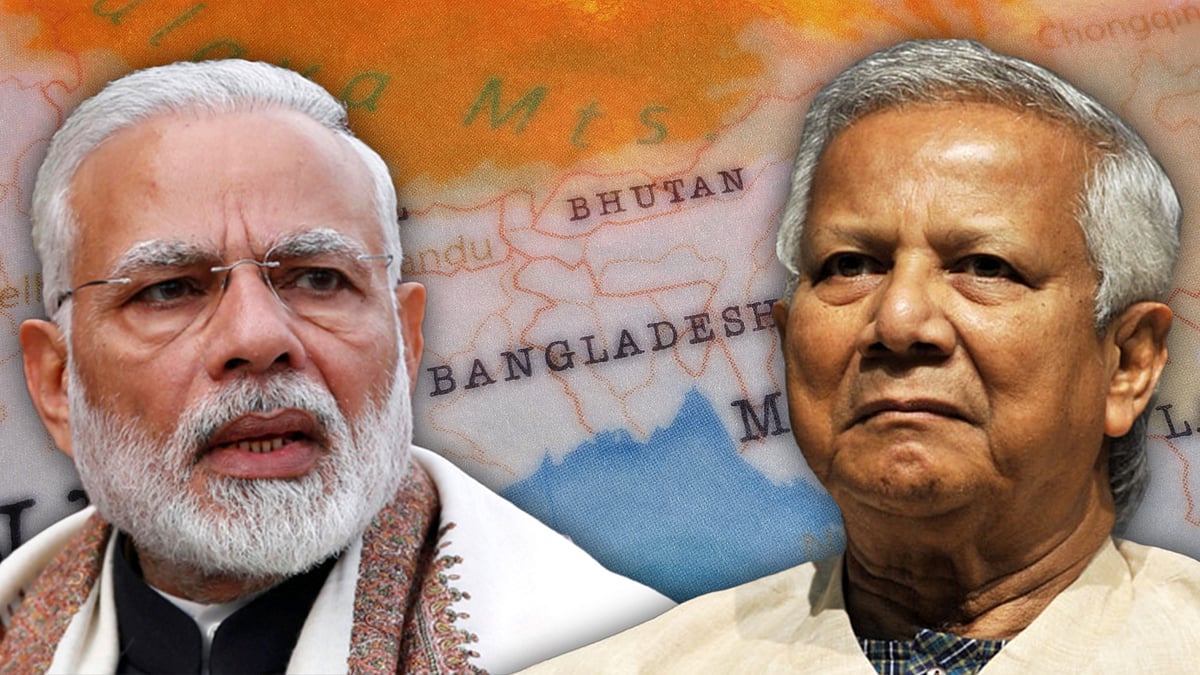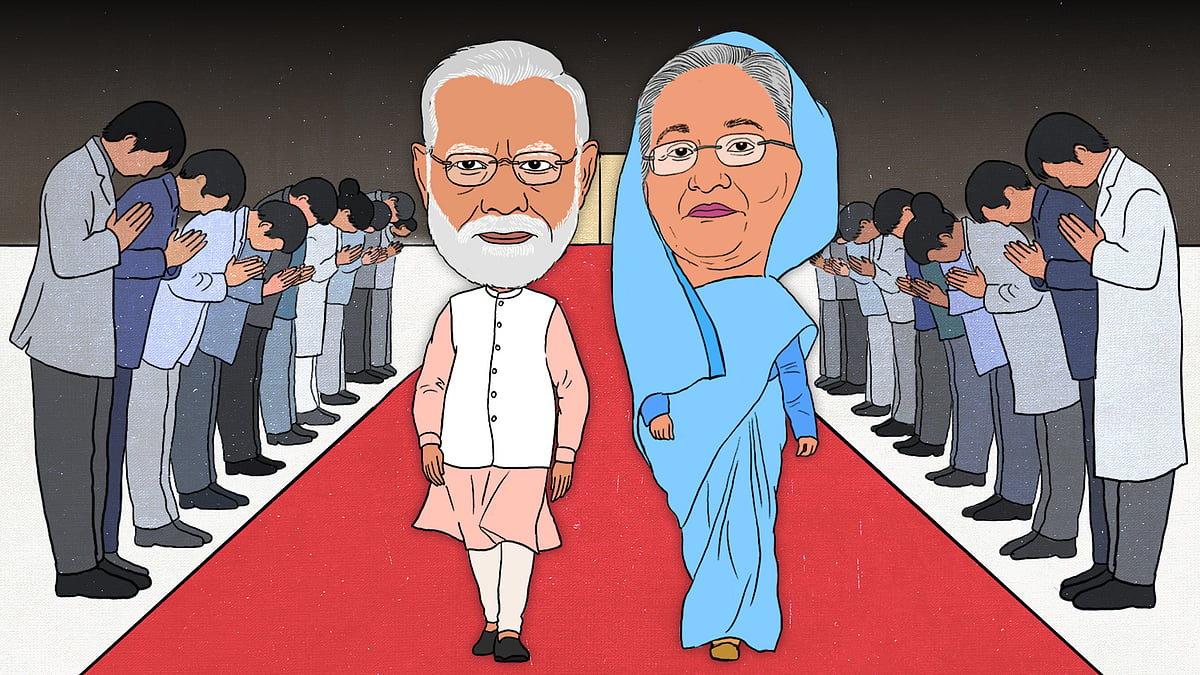‘Travesty of justice’, ‘Revenge trial’ : Editorials on Sheikh Hasina's death sentence verdict
On Monday, the International Crimes Tribunal convicted the former Bangladesh prime minister of “crimes against humanity.”
On Monday, former Bangladesh Prime Minister, Sheikh Hasina, was convicted to death by the International Crimes Tribunal (ICT) for “crimes against humanity” over her brutal crackdown of the student-led protests last year.
In a statement released by her party, the Awami League, she said: “The verdicts announced against me have been made by a rigged tribunal established and presided over by an unelected government with no democratic mandate. They are biased and politically motivated.”
She added: “In their distasteful call for the death penalty, they reveal the brazen and murderous intent of extremist figures within the interim government to remove Bangladesh’s last elected prime minister, and to nullify the Awami League as a political force.”
Responding to the verdict, Chief Advisor to the interim government, Muhammad Yunus, said: “Today, the courts of Bangladesh have spoken with a clarity that resonates across the nation and beyond. The conviction and sentencing affirm a fundamental principle: no one, regardless of power, is above the law. This verdict offers vital, if insufficient, justice to the thousands harmed in the uprising of July and August 2024, and to the families who still carry their loss.”
Meanwhile, the interim government in Bangladesh has asked the Indian government to extradite Hasina, who is currently being sheltered in an undisclosed location in India, and former Interior Minister Asaduzzaman Khan Kamal for their role in the crackdown against the protests.
The Indian government issued a guarded response, stating its commitment to “the best interests of the people of Bangladesh, including in peace, democracy, inclusion, and stability in that country.” It added: “We will always engage constructively with all stakeholders to that end.”
Editorials in some of India's leading dailies, however, questioned the legality and credibility of the verdict, raised the spectre of anti-secular forces taking hold of the country’s politics and institutions, and acknowledged the diplomatic challenges that lie ahead for the Indian government, since it has given shelter to the former Bangladeshi prime minister.
The Indian Express
In its editorial, headlined “Hasina death sentence is a travesty of justice,” the publication called the ICT’s verdict “blatantly prejudiced” and stated that the process behind reaching it “appeared vindictive.” The editorial questioned the composition of the ICT, noting the judge’s affiliation with the Awami League’s rival party, the Bangladesh National Party (BNP), and “absence of a proper defence to represent Hasina.” Further criticising the legal process, it stated how the defence lawyer “sought no adjournments and called no witnesses.”
Nonetheless, the editorial also noted how Hasina must “own up to her heavy-handed response to the uprising in July last year,” instead of blaming it on “foreign mercenaries” and “radical elements.” But it also questioned the interim government's actions, stating that it had “overreached its mandate” by clamping down on the Awami League. Furthermore, it argued that the election, scheduled for February 2026, can hope to attain any modicum of legitimacy if the party that led the charge for the country’s independence in 1971 is banned.
The editorial concluded that the verdict posed a “diplomatic test” for India, with the Bangladesh government formally requesting her extradition. “India will need to navigate this moment deftly, keeping in mind regional security considerations,” it said.
The Times of India
In its editorial, headlined “Revenge Trial,” the editorial noted the irony of Hasina getting convicted by the same tribunal she instituted to try the war criminals responsible for the genocide carried out during their country's liberation struggle in 1971. On the verdict itself, the editorial deemed it “legally questionable.” On the trial, it stated: “The trial appears to be an exercise in revenge. Those who prosecuted Hasina clearly have an axe to grind.” It also questioned the legitimacy of the elections scheduled for February 2026 without the presence of the Awami League and said, “they won't be representative.”
The editorial concluded with a stark warning for what the verdict and the current political climate in Bangladesh may mean for India and its national security: “Mujibur Rahman’s secular Bangladesh looks perilously close to sliding into Islamic fundamentalism, and Hasina is the obvious target. Unsurprisingly, the current Dhaka regime is indifferent to India’s security concerns. It’s prepared to take economic hits just to be nasty to New Delhi. All of this makes Bangladesh India’s dangerous eastern flank. Pakistan is already a constant security threat, and the addition of Bangladesh makes the job of security agencies all the tougher.”
Dainik Jagran
In its editorial, Dainik Jagran questioned the tribunal’s legality and credibility, citing its partisan composition. It further suggested the verdict was biased, noting that Chowdhury Abdullah – Bangladesh’s police chief during the student protests – received a comparatively lenient five-year sentence for cooperating with the tribunal. It also asserted that Hasina would not receive a “fair trial” if tried in Bangladesh.
While the editorial did not question the Hasina government's role in the deaths of many people and the need for accountability, it rejected the claim that the students were killed at her behest, a rather significant claim. It also noted that this movement was violent and aimed at overthrowing the government, and that her party and police personnel were targets of the violence incited by the protestors. Those accused of inciting the violence, it argued, had joined the interim government.
It concluded by painting a worrying picture of Bangladesh's future, warning that “radical elements” could seize power after the elections. The spectre of “radical elements” and India's refusal to hand over Hasina will raise tensions between the two nations, it noted.
The Tribune
In its editorial, headlined “Dhaka steps up pressure on Delhi after ICT verdict,” The Tribune narrated the events of Monday and noted how the interim government's request for Hasina's extradition was met by a “guarded response” from the Indian government.
Highlighting the diplomatic challenges facing the Indian government, the editorial stated: "Hasina has repeatedly claimed that she has been deprived of a fair trial."
“This argument, along with the prospect of her execution if she returns to her country, gives India valid reasons to stall her extradition. However, Delhi will find itself under greater pressure once an elected government assumes office in Dhaka after the February 2026 elections.”
Hindustan Times
In its editorial, headlined “Sentencing of Sheikh Hasina and vendetta politics in Bangladesh,” the publication stated that the verdicts “reflect the vendetta politics that have harmed India’s neighbourhood for a long time.” The editorial further criticised the interim government led by Yunus, arguing that the decision to ban the Awami League “certainly does not bode well for its promise of holding free and fair elections.” The editorial went on to note how the interim government's request for Hasina's extradition will add "further strain" on bilateral ties.
It concluded with a firm warning for the Indian government: “For the Indian side, any further chaos and instability in Bangladesh comes with the potential for affecting the security and economic progress of the country’s sensitive northeastern states, which have already been affected by the curtailing of connectivity and trade ties with Dhaka. India will do well to prepare for what is likely to be another disruptive spell in relations with Bangladesh.”
If the government can hike ad rates by 26 percent, we can drop our subscription prices by 26 percent. Grab the offer and power journalism that doesn’t depend on advertisers.
 Negotiating realities in frosty India-Bangladesh relations
Negotiating realities in frosty India-Bangladesh relations Democracy dies when ‘Godi media’ grows: Bangladesh is a wake-up call for India
Democracy dies when ‘Godi media’ grows: Bangladesh is a wake-up call for India